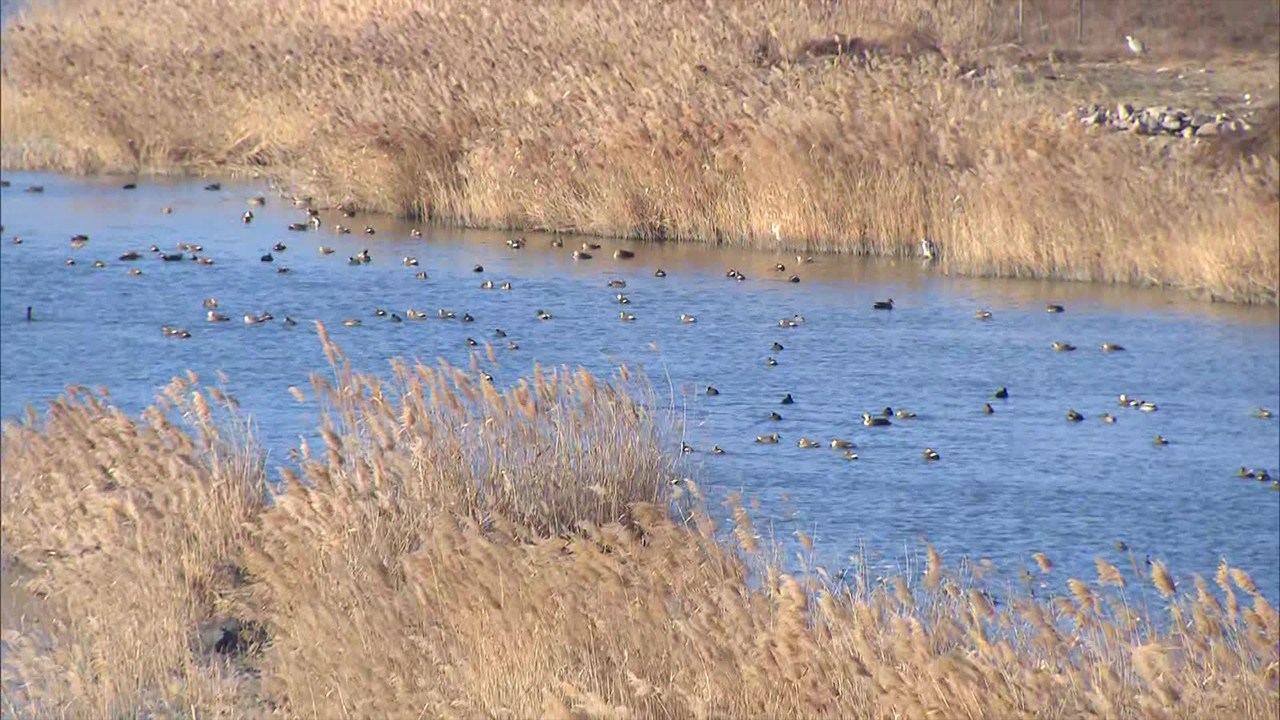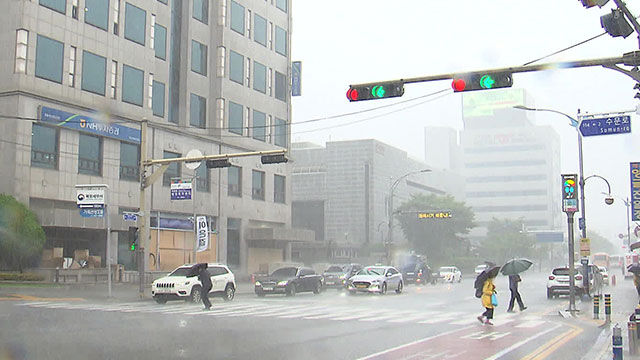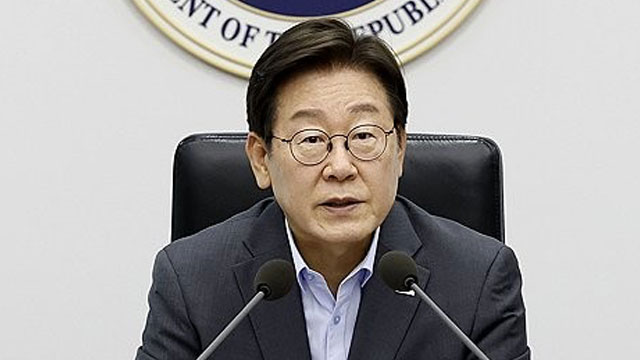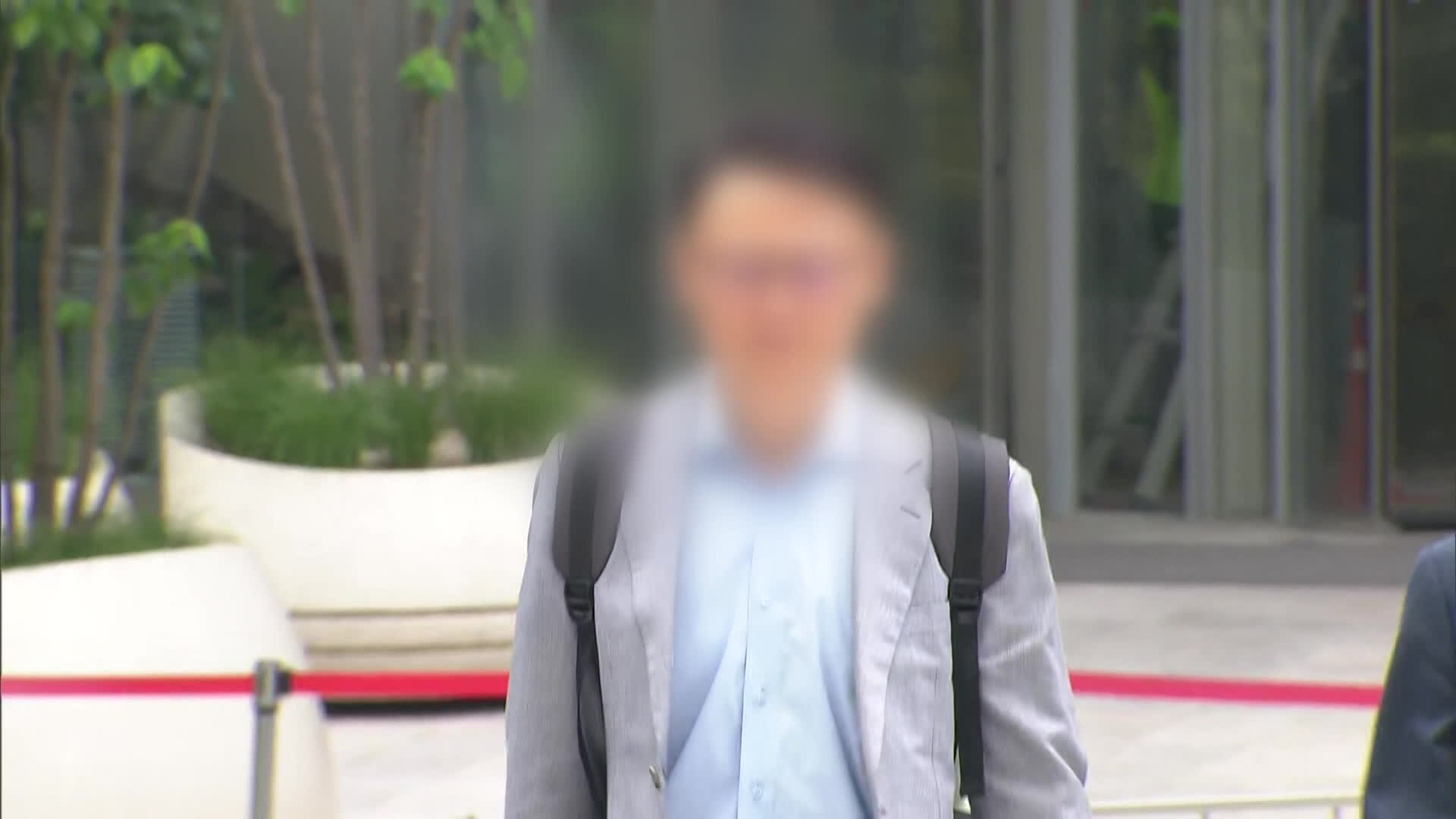[Anchor]
Since the tragic incident involving a Jeju Air passenger plane, Incheon Airport and the Air Force are making every effort to prevent bird strikes.
They are also accelerating the revision of laws for the introduction of more effective bird deterrent equipment and the development of bird strike testing equipment.
Park Jae-woo reports.
[Report]
Incheon International Airport at 8 AM, when birds are most active.
Although the rate of bird strikes is 0.99 per 10,000 flights, which is one-tenth of that at Muan Airport, making it the safest in the country, bird control personnel do not take their eyes off the skies for a moment.
They are equipped with sound wave deterrents and shotguns as a basic measure, and have also introduced 'paintball guns' and thermal imaging cameras to carry out bird deterrent operations 24 hours a day.
[Kwon Hyuk-rak/Incheon Airport Wildlife Control Team Leader: "Due to the need to coexist with nature, we use non-lethal control methods such as sound wave deterrents and paintball guns."]
The team is demanding legal revisions for the introduction of more effective deterrent equipment, such as 'laser guns.'
[Bae Jun-young/Member of the National Assembly Public Administration and Security Committee: "If we can eliminate bird strike incidents more efficiently through advanced equipment, I will push for legislation in that direction."]
Additionally, the Air Force has recently introduced over 50 special drones that emit noise and light to deter flocks of birds.
The Ministry of Trade, Industry and Energy and Incheon City have developed equipment for the first time in the country to verify whether each component of an aircraft is safe during a bird strike, investing 18.6 billion won.
They conducted a test simulating a collision between a 1.8 kg bird and the cockpit of an aircraft flying at 360 km/h.
[Kim Ho/Director/Incheon Technopark: "The results of this test will allow us to evaluate whether each component of the aircraft has been manufactured according to design standards."]
By the end of this year, they plan to increase the collision test speed to over 1,000 km/h, which is on par with advanced passenger aircraft and fighter jets.
This is KBS News, Park Jae-woo reporting.
Since the tragic incident involving a Jeju Air passenger plane, Incheon Airport and the Air Force are making every effort to prevent bird strikes.
They are also accelerating the revision of laws for the introduction of more effective bird deterrent equipment and the development of bird strike testing equipment.
Park Jae-woo reports.
[Report]
Incheon International Airport at 8 AM, when birds are most active.
Although the rate of bird strikes is 0.99 per 10,000 flights, which is one-tenth of that at Muan Airport, making it the safest in the country, bird control personnel do not take their eyes off the skies for a moment.
They are equipped with sound wave deterrents and shotguns as a basic measure, and have also introduced 'paintball guns' and thermal imaging cameras to carry out bird deterrent operations 24 hours a day.
[Kwon Hyuk-rak/Incheon Airport Wildlife Control Team Leader: "Due to the need to coexist with nature, we use non-lethal control methods such as sound wave deterrents and paintball guns."]
The team is demanding legal revisions for the introduction of more effective deterrent equipment, such as 'laser guns.'
[Bae Jun-young/Member of the National Assembly Public Administration and Security Committee: "If we can eliminate bird strike incidents more efficiently through advanced equipment, I will push for legislation in that direction."]
Additionally, the Air Force has recently introduced over 50 special drones that emit noise and light to deter flocks of birds.
The Ministry of Trade, Industry and Energy and Incheon City have developed equipment for the first time in the country to verify whether each component of an aircraft is safe during a bird strike, investing 18.6 billion won.
They conducted a test simulating a collision between a 1.8 kg bird and the cockpit of an aircraft flying at 360 km/h.
[Kim Ho/Director/Incheon Technopark: "The results of this test will allow us to evaluate whether each component of the aircraft has been manufactured according to design standards."]
By the end of this year, they plan to increase the collision test speed to over 1,000 km/h, which is on par with advanced passenger aircraft and fighter jets.
This is KBS News, Park Jae-woo reporting.
■ 제보하기
▷ 카카오톡 : 'KBS제보' 검색, 채널 추가
▷ 전화 : 02-781-1234, 4444
▷ 이메일 : kbs1234@kbs.co.kr
▷ 유튜브, 네이버, 카카오에서도 KBS뉴스를 구독해주세요!
- Bird strike prevention intensifies
-
- 입력 2025-01-13 23:56:29

[Anchor]
Since the tragic incident involving a Jeju Air passenger plane, Incheon Airport and the Air Force are making every effort to prevent bird strikes.
They are also accelerating the revision of laws for the introduction of more effective bird deterrent equipment and the development of bird strike testing equipment.
Park Jae-woo reports.
[Report]
Incheon International Airport at 8 AM, when birds are most active.
Although the rate of bird strikes is 0.99 per 10,000 flights, which is one-tenth of that at Muan Airport, making it the safest in the country, bird control personnel do not take their eyes off the skies for a moment.
They are equipped with sound wave deterrents and shotguns as a basic measure, and have also introduced 'paintball guns' and thermal imaging cameras to carry out bird deterrent operations 24 hours a day.
[Kwon Hyuk-rak/Incheon Airport Wildlife Control Team Leader: "Due to the need to coexist with nature, we use non-lethal control methods such as sound wave deterrents and paintball guns."]
The team is demanding legal revisions for the introduction of more effective deterrent equipment, such as 'laser guns.'
[Bae Jun-young/Member of the National Assembly Public Administration and Security Committee: "If we can eliminate bird strike incidents more efficiently through advanced equipment, I will push for legislation in that direction."]
Additionally, the Air Force has recently introduced over 50 special drones that emit noise and light to deter flocks of birds.
The Ministry of Trade, Industry and Energy and Incheon City have developed equipment for the first time in the country to verify whether each component of an aircraft is safe during a bird strike, investing 18.6 billion won.
They conducted a test simulating a collision between a 1.8 kg bird and the cockpit of an aircraft flying at 360 km/h.
[Kim Ho/Director/Incheon Technopark: "The results of this test will allow us to evaluate whether each component of the aircraft has been manufactured according to design standards."]
By the end of this year, they plan to increase the collision test speed to over 1,000 km/h, which is on par with advanced passenger aircraft and fighter jets.
This is KBS News, Park Jae-woo reporting.
Since the tragic incident involving a Jeju Air passenger plane, Incheon Airport and the Air Force are making every effort to prevent bird strikes.
They are also accelerating the revision of laws for the introduction of more effective bird deterrent equipment and the development of bird strike testing equipment.
Park Jae-woo reports.
[Report]
Incheon International Airport at 8 AM, when birds are most active.
Although the rate of bird strikes is 0.99 per 10,000 flights, which is one-tenth of that at Muan Airport, making it the safest in the country, bird control personnel do not take their eyes off the skies for a moment.
They are equipped with sound wave deterrents and shotguns as a basic measure, and have also introduced 'paintball guns' and thermal imaging cameras to carry out bird deterrent operations 24 hours a day.
[Kwon Hyuk-rak/Incheon Airport Wildlife Control Team Leader: "Due to the need to coexist with nature, we use non-lethal control methods such as sound wave deterrents and paintball guns."]
The team is demanding legal revisions for the introduction of more effective deterrent equipment, such as 'laser guns.'
[Bae Jun-young/Member of the National Assembly Public Administration and Security Committee: "If we can eliminate bird strike incidents more efficiently through advanced equipment, I will push for legislation in that direction."]
Additionally, the Air Force has recently introduced over 50 special drones that emit noise and light to deter flocks of birds.
The Ministry of Trade, Industry and Energy and Incheon City have developed equipment for the first time in the country to verify whether each component of an aircraft is safe during a bird strike, investing 18.6 billion won.
They conducted a test simulating a collision between a 1.8 kg bird and the cockpit of an aircraft flying at 360 km/h.
[Kim Ho/Director/Incheon Technopark: "The results of this test will allow us to evaluate whether each component of the aircraft has been manufactured according to design standards."]
By the end of this year, they plan to increase the collision test speed to over 1,000 km/h, which is on par with advanced passenger aircraft and fighter jets.
This is KBS News, Park Jae-woo reporting.
-
-

박재우 기자 pjwoo@kbs.co.kr
박재우 기자의 기사 모음
-
이 기사가 좋으셨다면
-
좋아요
0
-
응원해요
0
-
후속 원해요
0











![[단독] 위성락 실장 “전작권 협상 카드 아냐”…차관 인선 발표](/data/layer/904/2025/07/20250713_krfuHu.jpg)



이 기사에 대한 의견을 남겨주세요.